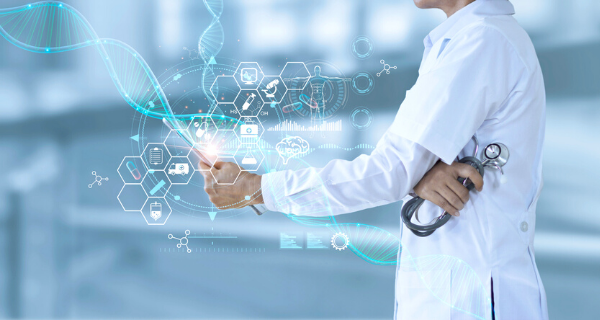Introduction:
Advancements in technology have revolutionized nearly every aspect of our lives, and medicine is no exception. From diagnosis to treatment, technology is transforming the field of healthcare, offering new possibilities for improved patient care and outcomes. In this blog post, we will explore the future of medicine and how technology is changing the way we treat disease. By embracing these innovations, we can look forward to a future where healthcare is more precise, personalized, and accessible.
Precision Medicine and Personalized Treatments
One of the most significant advancements in medicine is the shift towards precision medicine, which tailors treatments to individual patients based on their genetic makeup, lifestyle, and environmental factors. Key technologies driving precision medicine include:
Genomics and Genetic Testing: Advances in DNA sequencing and genetic testing allow for the identification of genetic variations and predispositions to certain diseases, enabling personalized treatment plans.
Pharmacogenomics: Understanding how an individual’s genetic makeup influences their response to medications helps optimize drug selection and dosage for better therapeutic outcomes.
Biomarkers and Diagnostic Tools: The development of biomarkers and diagnostic tests allows for early detection, precise diagnosis, and monitoring of diseases, leading to timely interventions and improved patient outcomes.
Digital Health and Telemedicine
Digital health technologies are transforming healthcare delivery, making it more convenient, accessible, and efficient. Here are some key technologies in this domain:
Telemedicine and Virtual Care: Remote consultations, teleconferencing, and remote monitoring enable patients to access healthcare services from the comfort of their homes, expanding healthcare access and reducing the burden on healthcare facilities.
Mobile Health (mHealth) Applications: Mobile apps and wearable devices allow individuals to monitor their health, track vital signs, manage chronic conditions, and receive personalized health recommendations.
Electronic Health Records (EHRs): Digital records streamline the storage and exchange of patient information, improving care coordination and facilitating data-driven decision-making.
Artificial Intelligence (AI) and Machine Learning
AI and machine learning are revolutionizing healthcare by analyzing vast amounts of data, identifying patterns, and generating insights for diagnosis, treatment, and research. Here are some applications of AI in medicine:
Medical Imaging and Diagnosis: AI algorithms can analyze medical images, such as X-rays, MRIs, and CT scans, assisting in the detection and diagnosis of diseases with high accuracy and efficiency.
Drug Discovery and Development: AI-powered algorithms accelerate the drug discovery process by analyzing large datasets, predicting drug-target interactions, and identifying potential candidates for new therapies.
Predictive Analytics and Risk Stratification: AI algorithms can analyze patient data to identify patterns and predict disease progression, allowing for early interventions and personalized treatment plans.
Robotic-Assisted Surgery: Surgical robots equipped with AI capabilities enable precise and minimally invasive procedures, improving surgical outcomes and reducing recovery time.
Conclusion
The future of medicine is undeniably intertwined with technology. From precision medicine and personalized treatments to digital health innovations and the power of artificial intelligence, technology is reshaping healthcare as we know it. As we embrace these advancements, we can look forward to a future where healthcare is more accessible, efficient, and patient-centered. It is an exciting time in the field of medicine, where the marriage of technology and healthcare holds the promise of improved outcomes, enhanced patient experiences, and ultimately, a healthier world.


